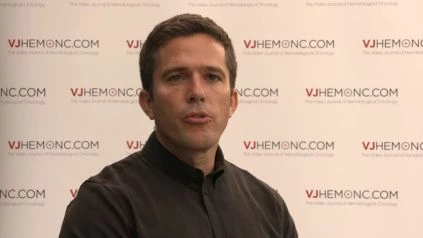Carsten Niemann, MD, PhD of Rigshospitalet, Copenhagen, Denmark dicusses the development of new advanced methods to identify chronic lymphocytic leukemia (CLL) patients in need of specific treatment while at the 2016 International Workshop of the German CLL Study Group (GCLLSG) in Cologne, Germany. Dr Niemann explains that at the moment, TP53 mutation or deletion of 17p are the the only biological markers that indicate that a patient will need specific targeted treatment in first-line. However, we are in a field that is rapidly developing with, for example, IGHV mutational status indicating sensitivity to chemmoimmunotherapy. Some of the new recurrent mutations in CLL may also have an impact in practice. He believes that it is important to transfer these research findings and use them as novel predictors. He explains that he does not think there will be a single predictor like deletion of 17p and TP53 mutation but that there will be a pattern. They have therefore teamed up with the DTU Technical University for Computer Sciences to develop machine learning-based algorithms based on pattern recognition using results of a multitude of recurrent mutation (there is currently a panel of between 50 and 60 recurrent mutations both in genes and regulatory elements), adding in data on the exact sequence of the IGHV molecule, functional characterization of primary CLL cells and developing lab work over time, as well as considering infectious complications and co-morbidities. They are trying to put together all this data to come up with a novel algorithm for patterns that identify patients in need of specific CLL treatment or specific supportive care.
[the_ad id="32629"]

